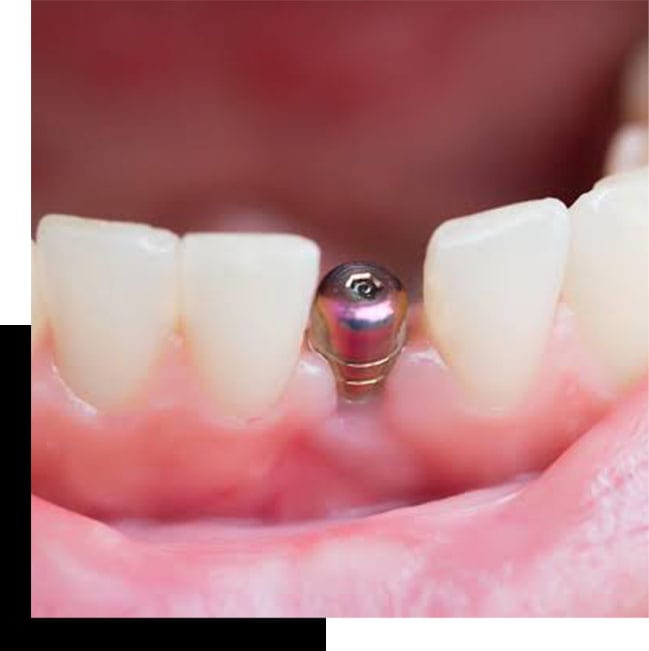Tips on Eating with Dentures
Dentures are man-made appliances used to replace missing teeth. They are custom-molded in acrylic to fit your mouth but can often feel uncomfortable and awkward for several weeks as you are getting used to them. You will almost invariably produce more saliva during this adjustment period, causing the denture to slip around just a bit, and may develop a few sore spots in the process.
Adjusting to life with dentures can take time as your facial muscles adapt to changes in your bite and the altered position of your tongue, lips, and cheeks. Fortunately, there are things you can do to minimize these effects as your dentures settle in. You can use these tips on eating with dentures.
Eating a Soft Diet
You may find that certain foods taste different with dentures, particularly salty and bitter foods. Try not to worry; your sense of taste should improve over time.
The choice of denture adhesive is also important. We recommend Adhesadent denture adhesive- the 1st denture adhesive to earn the American Dental Association Seal of Approval.
The first rule of thumb when wearing new dentures is to take it easy with food. Start slowly with soft foods that are don’t require excessive chewing. Eating red meat, crackers, raw carrots, and or anything crunchy will exert undue stress on underlying gum tissues, increase the risk of irritation and inflammation.
Until your gums better adapt to the denture plate, take it easy and follow these simple self-help tips:
- Start with a mechanical soft diet. Pureed foods like applesauce, puddings, cooked cereals, scrambled eggs, and mashed potatoes provide the nutrition you need without compromising your gums or stressing your jaw muscles.
- Check the temperature. Be careful with hot foods that can burn your mouth. You won’t be able to judge temperatures as well due to the insulating effect of the dentures. Test hot foods on your lips before putting them in your mouth.
- Don’t hold liquids in your mouth. This can loosen bottom dentures.
- Avoid spicy foods. If you do have sores or irritation, they can cause burning or stinging.
You may find that certain foods taste different with dentures, particularly salty and bitter foods.1 Try not to worry; your sense of taste should improve over time.
Eating Solid Foods
When you’re ready to move on to solid foods, be sure to cut your food into tiny pieces. You should also be cognizant of how you chew and how fast you eat. It is generally best to eat sitting down and to allow yourself plenty of time for a meal. Eating on the run will more likely cause pain and denture slippage as you rush through a meal.
Among the other useful tips:
- Chew on both sides. Distribute your food evenly on both sides in the back of your mouth when you chew, this will help keep your dentures more stable while you eat.
- Chew slowly and thoroughly before you swallow. Don’t gulp down large pieces of unchewed food because you could choke on them.
- Take smaller bites. Slice fresh fruits and vegetables into very thin slices or chop them into tiny pieces, so they are easy to chew or cook them before serving.
- Drink with your meals. Whole grain bread and cereals are good for you, but they may stick to your teeth. Eat them with liquids to make them easier to chew and swallow.
- Avoid hard-to-chew meats. Replace tough red meats with poultry, fish, eggs, and legumes, or choose stewed or slow-cooked meats.
- Avoid sticky or gummy foods. These include taffy, caramel, marshmallows treats, peanut butter, and raisins. These can adhere to the upper and lower molars (chewing teeth) and dislodge your dentures.
The choice of denture adhesive is also important. Adhesives in glue form tend to provide the greatest stability but can make cleaning difficult. Adhesive seals and powders offer less stability but easier clean-up, reducing the risk of gum irritation.2
Whatever you do, take things slowly and remember that a little soreness is to be expected as the muscles in your mouth and cheeks get used to keeping your dentures in place. But be sure to tell your dentist if pain and other problems do not go away.
Eating After Healing
Once you are fully adjusted to wearing dentures, you should be able to eat almost anything. However, there may be some foods that will always be difficult to eat such as foods that are hard, sticky or contain small hard particles. Even with a strong mouth and well-fitting dentures, there are some foods you will want to eat with care:
- Raw vegetables
- Crunchy fruits
- Corn on the cob
- Crusty bread
- Crackers
- Popcorn
- Tough, stringy meats
- Crunchy peanut butter
- Chewing gum
- Sticky candy
- Whole nuts
A Word From Verywell
Eating a healthy diet requires the ability to chew your food, which isn’t an easy task if you’ve just been fitted with new dentures, but, as long as you follow our tips, plus some time and patience, you’ll be chewing and eating normally in a few weeks.
However, if you have any problems such as mouth sores that don’t heal or continuing pain, or you just don’t seem to be able to get the hang of chewing with dentures, you can go to your dentist for help.
Article from



